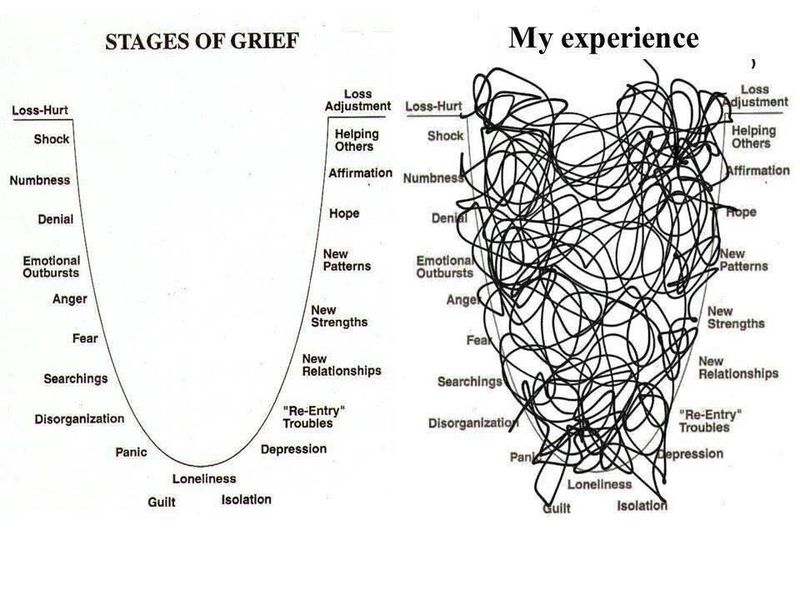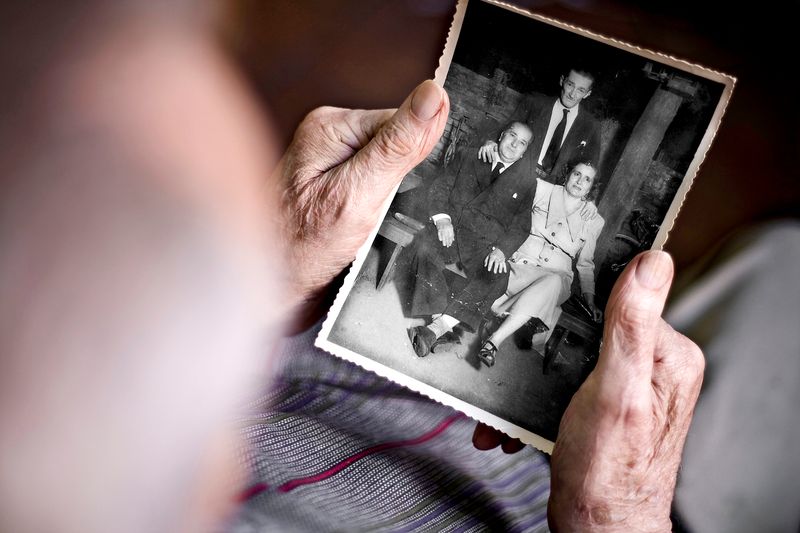20 Things You Should Never Do After Losing Your Spouse
When you lose your person, the world doesn’t pause. It keeps spinning. People mean well—but the advice comes fast, and the silence hits harder.
Some things help. Others don’t. In the middle of that kind of loss, it’s easy to act out of shock, pressure, or survival mode.
These aren’t rules—just reminders. Here are 20 things that, if you can avoid them, might protect your heart a little as you find your way through.
1. Don’t rush into big life decisions

When the weight of grief settles in, the urge to drastically change your life can be powerful. Big decisions, such as moving house or changing careers, might seem like a way to escape the pain. However, these decisions made in haste can lead to regrets later.
Allow yourself the grace of time to adjust to your new reality before making life-altering choices. The world can feel unsteady, and you deserve the stability of familiar ground as you navigate this unfamiliar terrain.
Take each day as it comes, and permit yourself to defer big decisions until your mind is clearer. This is not a time for added stress—give yourself permission to focus on healing first.
2. Don’t pretend you’re fine for everyone else’s comfort

The brave face you put on for the world can become a mask that feels too heavy. It’s okay to not be okay. The expectations others place on you to be ‘strong’ or ‘resilient’ are not for you to bear.
Your feelings are valid, and it’s important to be honest about them—not just with others, but with yourself. When you pretend to be fine, you deny yourself the space to process your grief authentically.
Don’t compromise your healing for the comfort of those around you. Vulnerability is not weakness; it’s a profound part of the healing journey. Trust that those who truly care will understand.
3. Don’t compare your grief to anyone else’s

Grief is as unique as a fingerprint. It’s personal, complex, and varies wildly between individuals. Comparing your experience to that of others can be tempting, but it often leads to unnecessary guilt or shame.
Remember, your journey is yours alone. It’s shaped by your history, your love, and the life you shared with your spouse. Resist the urge to measure your progress against someone else’s timeline.
Instead, honor your path as it unfolds. Trust that there is no correct way to grieve, only what feels right for you. Hold space for your emotions, and know that healing is a deeply personal process.
4. Don’t isolate yourself completely—even when it feels easier

Isolation can feel like a protective cocoon, but it’s often a slippery slope into loneliness. While solitude is a part of processing loss, complete withdrawal from social connections can hinder your healing.
Reach out, even if it’s just to let someone know you need space. You don’t have to face this alone. Small interactions—a coffee with a friend, a walk with a neighbor—can gently reintroduce you to the world.
Allow others to support you, even in small ways. Connection doesn’t have to be overwhelming; it can be as simple as a shared silence or a knowing look. Let companionship be a bridge back to yourself.
5. Don’t apologize for how you’re grieving

Grief doesn’t adhere to a prescribed schedule or set of behaviors. It’s raw, unpredictable, and often contradictory. In this midst, you might feel pressure to temper your emotions to please others or maintain decorum.
Release the need to apologize for your grief’s expressions. Whether you’re crying, laughing, or just sitting in silence, all these moments are legitimate aspects of your journey.
Embrace your authenticity and allow your emotions to flow naturally. Grief’s unpredictability doesn’t lessen its importance; instead, it reflects the depth of your love and loss. Be gentle with yourself, and know that you owe no explanations.
6. Don’t ignore your health while trying to stay “strong”

In the wake of loss, maintaining your health may feel secondary. However, neglecting it can have long-term implications for your well-being. Your body is the vessel carrying you through this emotional journey.
Prioritize your health by keeping up with regular check-ups, eating nourishing foods, and getting enough rest. Remember, strength isn’t about ignoring pain but enduring it while taking care of yourself.
Reaching out for medical or psychological support is a strength, not a weakness. Addressing your health needs allows you to cope better with the emotional challenges you face. Trust in your resilience, but support it with practiced self-care.
7. Don’t feel guilty for laughing or feeling okay for a moment

Amidst the heaviness of grief, moments of lightness may catch you off guard. A spontaneous laugh or a brief sense of peace can spark guilt, as if you’re betraying your loved one.
Understand that these moments don’t diminish your love or loss. They are not betrayals but reminders of the joy your spouse brought into your life. Allow yourself these snippets of relief without reservation.
Grief and joy can coexist. Embrace these flickers of normalcy as signs of resilience and healing. They’re not a forgetting but a testament to the enduring bond you shared. Cherish them without guilt.
8. Don’t make financial moves without clear advice

In the aftermath of losing a spouse, financial decisions can feel both urgent and overwhelming. It’s tempting to hastily resolve financial uncertainties, but impulsive actions may not be in your best interest.
Seek the support of a trusted advisor to help you navigate these waters. They can provide clarity and ensure that your decisions align with your long-term well-being.
Take your time to understand the implications of each decision. This isn’t the moment for rushed judgments. Rely on expert guidance to make informed choices that support your future stability and peace of mind.
9. Don’t keep things bottled up—grief needs somewhere to go

Grief demands expression, and bottling it up can intensify its burden. Whether through words, art, or conversation, find a channel that feels natural to you where your sorrow can be voiced.
Consider keeping a journal, attending support groups, or speaking with a counselor. Sharing your story can be both a release and a comfort, allowing you to connect with others who understand.
Your grief is valid and deserves acknowledgment. By giving it a voice, you claim its place in your life and start to weave it into the fabric of your new reality. Let it be heard in the way that feels right to you.
10. Don’t expect closure to come on a timeline

Closure is a concept often spoken of but rarely understood in the context of grief. It’s not a destination you arrive at but a gradual process that unfolds over time.
Release the expectation of reaching a definitive end-point. The absence of a timeline allows you to honor your grief for as long as it needs to linger. Each moment can be a step forward, even if the path isn’t linear.
Trust that healing is ongoing. Allow yourself to ebb and flow with the tides of your emotions, and remember that the journey is uniquely yours. There’s no rush to be ‘over it,’ only the gentle pace you set for yourself.
11. Don’t let others tell you how you should feel

The well-meaning advice of others often comes with the best intentions but can feel intrusive or invalidating. Your emotions are nuanced, shaped by your personal journey and experiences.
Stand firm in your feelings and resist internalizing the opinions of others. You are the expert of your own grief, and your emotions deserve respect and validation.
Communicate your boundaries and emotional needs clearly. Allow yourself to experience your grief authentically, guided by your own intuition rather than external expectations. Trust in your capacity to heal in your own way, at your own pace.
12. Don’t erase your spouse to make others comfortable

The presence of your spouse in your life doesn’t vanish with their passing. Their memory lives on in your heart and home. It’s common to feel pressure to minimize these reminders for the sake of others’ discomfort.
However, your home is your sanctuary. Surround yourself with the memories that bring you comfort and joy. Display photos, mementos, and cherished keepsakes proudly.
Honor your spouse’s memory in the way that feels right to you. Their story is intertwined with yours, and celebrating that connection is both a tribute to them and a source of solace for you.
13. Don’t pressure yourself to clean out their belongings too soon

Sorting through a loved one’s belongings is a deeply personal task, and there’s no rush to complete it. The pressure to clear things away can feel relentless, but it’s crucial to honor your own timeline.
Take your time to decide what to keep, what to give away, and what to let go. Each item holds memories, and the process should be guided by your heart, not external expectations.
Allow yourself to keep items that bring comfort and release those that don’t. This is a journey of both letting go and holding on, and it’s important to move at a pace that feels right for you.
14. Don’t avoid help because you think you “should be over it”

The notion of ‘getting over it’ is misleading and places undue pressure on your healing journey. Grief doesn’t adhere to a timeline, and seeking help is a sign of courage, not defeat.
Therapists, counselors, and support groups offer valuable spaces to process your emotions. They provide tools and understanding that can ease the burden of carrying grief alone.
Embrace the support available to you, and know that seeking help is a proactive step in honoring your healing. In reaching out, you affirm your commitment to navigating this journey with resilience and self-compassion.
15. Don’t believe that healing means forgetting

Healing from grief doesn’t equate to forgetting your spouse or the life you shared. Memories are treasures that keep their spirit alive and present in your life.
Allow yourself to revisit these memories without fear of losing them. Healing involves integrating the past with the present, cherishing the moments that continue to shape who you are.
Your spouse’s impact remains, and healing honors that legacy. Remember, moving forward doesn’t mean moving away—it means carrying them with you in new and meaningful ways. Embrace both the joy and sorrow of memory as part of your journey.
16. Don’t stay stuck in pain just to feel connected to them

Grief can feel like a binding tie to your spouse, but lingering in pain isn’t the only way to maintain that connection. Holding onto suffering might seem like a tribute, but it can impede your healing.
Consider other ways to honor their memory, such as sharing stories, creating a memorial, or contributing to a cause they loved. These acts celebrate their life and legacy without anchoring you in perpetual sorrow.
Remember, your spouse would want you to find peace and happiness. Let their love be a guiding light as you find balance between remembrance and renewal. Embrace life’s possibilities in their honor.
17. Don’t judge yourself for not crying—or for crying every day

The expression of grief is deeply personal, with no single ‘right’ way to feel or show it. You may find yourself crying daily, or perhaps tears come rarely. Both are perfectly okay.
Give yourself permission to experience grief in its natural form, without self-imposed judgments. Tears are a release, but their absence doesn’t signify a lack of sorrow.
Trust in your emotions and their validity. Whether through quiet reflection or open expressions of sadness, your grief is yours to experience authentically. Let go of societal expectations and embrace your feelings as they are.
18. Don’t let anyone rush your “moving on”

The concept of ‘moving on’ can feel like a burden when imposed by others. Your timeline for healing is solely yours to determine. Resist external pressures to conform to a predetermined pace.
Allow your emotions to guide this journey, moving forward when it feels right to you. Healing is not about forgetting, but about integrating the past with your present.
Embrace patience and kindness towards yourself. In your own time, you will find a balance between honoring your spouse and embracing new beginnings. Trust in your journey and the unique path you are forging.
19. Don’t think your grief has to look graceful

Grief is often portrayed as a dignified, composed process. In reality, it can be messy, overwhelming, and far from graceful. Allow yourself to grieve without expectations of how it should appear to others.
Your journey is valid in all its forms—whether it’s through chaotic emotions or serene moments of reflection. Let go of the need to present a polished exterior.
Embrace the rawness of your emotions and the authenticity of your experience. In doing so, you honor the depth of your loss and the sincerity of your love. Trust in the beauty of imperfection as part of your healing process.
20. Don’t lose yourself while holding onto the past

The past holds treasured memories of your spouse and the life you shared. However, it’s important to remain open to the present and future opportunities for growth and joy.
Engage in activities that bring you happiness and fulfillment. Allow yourself to explore new interests and connections without guilt.
Your spouse’s memory is a cherished part of your identity, but it need not overshadow your personal evolution. Embrace the possibilities of today, knowing that moving forward doesn’t mean leaving them behind. Let your love for them inspire a journey of self-discovery.







